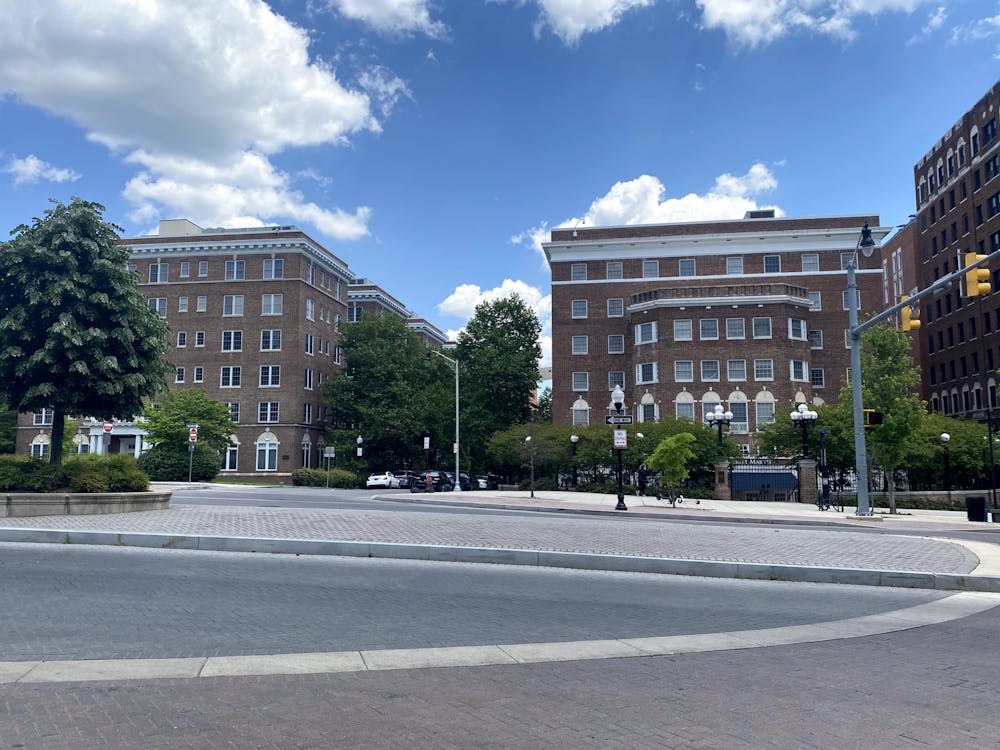The Bloomberg School of Public Health hosted a webinar with Tim Wise titled “Defending Critical Race Theory from Orchestrated Attacks'' on Oct. 27. Wise is an activist and writer whose work focuses on anti-racism. He has written eight books on race, including White Like Me, which examines his experience with white privilege.
The event was the sixth in the Anti-Racism Teach-In series hosted by the School of Public Health’s Office of Inclusion, Diversity, Anti-Racism and Equity (IDARE), which was started last year.
Office of the Dean representative Susan Williams, one of the organizers for the webinar, explained why the School of Public Health decided to host this event in an email to The News-Letter.
“A small group of volunteers including faculty and staff began organizing the Teach-Ins in the wake of George Floyd’s death and the intense feelings that were raised here at the Bloomberg School,” she wrote.
Wise described current and historical discourse on critical race theory (CRT), explaining how sentiment against it disrupts progress towards racial equality.
“We need to be very clear; critical race theory is not only legitimate, it is absolutely valuable and critical if we're going to solve the problems that confront us,” he said.
Wise also discussed misconceptions surrounding the theory. He claimed that though many people think that CRT portrays white people as evil, this is impossible because the theory views race as a social construct.
Wise also criticized attempts at suppressing the teaching of CRT.
“We're more concerned with protecting white children's feelings about racism than we are at protecting Black and brown people from racism,” he said. “This is [CRT critics’] priority.”
Lillian Streaker, a Social Work Intern at the Bayview Medical Center, attended the webinar. She shared her thoughts on teaching CRT in schools in an interview with The News-Letter.
“In order to work towards depletion and awareness of systemic racism, a crucial step can be to begin education on the topic at early ages of all children through critical race theory to challenge the mainstream approaches to racial justice,” she said.
Wise also discussed how CRT examines the shortcomings of legislation when it comes to tackling racism. For example, despite the passage of the Civil Rights Act, Voting Rights Act and Fair Housing Act, Wise noted that inequalities still persist.
Belief that laws can completely disrupt racism goes against CRT, according to Wise.
“We sort of have this very formulaic sort of transactional analysis that says, well, we had a problem, and then we pass some laws and now there's no longer a problem,” he said. “That's like the dominant way, the anti-CRT way of living, and it just doesn't make any sense.”
The public health implications of racism frequently came up during the webinar. Wise explained that as a result of systemic racism, Black people have lower health indicators compared to white people.
For example, Black women are four times more likely than white women to die from causes related to pregnancy. Wise clarified that racial health disparities can be attributed to the cumulative effect of discrimination in public health research and practices.
An additional public health issue that Wise elaborated on was the role of discrimination in the United States’ COVID-19 response.
He asserted that because COVID-19 disproportionately affects people of color, white citizens did not regard its severity until a larger percentage of white people died from the virus.
Wise implored audience members to understand how the state of the nation depends on defending critical race theory.
“It's important to challenge this attack on critical race theory, first because it's fundamentally dishonest, but secondly because if we don't get a handle on racism and the effects of racism, we're all going to be in serious danger,” he said.
Wise answered questions regarding reparations and what defines violence as genocidal.
He believes that reparations are a necessary step towards resolving systemic inequality, though he remains flexible regarding the specific way of giving reparations.
Wise argued that any action intended to harm or marginalize a group of people based on characteristics such as race and religion is considered genocide. Specifically, Wise categorized the mistreatment of immigrants at the U.S. border as genocidal.
“So you can see a lot of what goes on at the border, a lot of the mistreatment of people at the border in detention at the border, all of it really intended to inflict pain,” he said.
In an email to The News-Letter, School of Public Health Program Officer Amanda Burgess, expressed satisfaction with the webinar and the introduction by IDARE Assistant Dean Joel Bolling.
“Overall, I think it was a really interesting event and a good use of my time to attend and participate,” she wrote. “I really appreciated the framing that Joel gave at the beginning of the talk to think about how we got here, and who we want to be in the future.”
Streaker echoed this opinion.
“As a young professional, I have been made increasingly more aware of how systemic racism affects imperative systems and structures encountered in our world today, making it socially, economically and financially challenging for individuals of color,” she said. “Attacking CRT means attacking progress. I can only hope we see change.”





